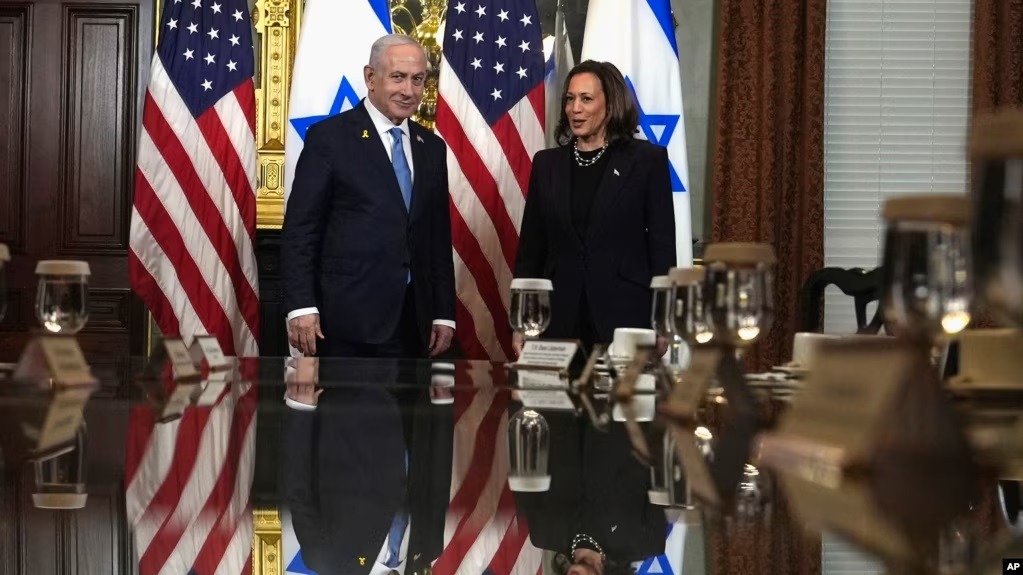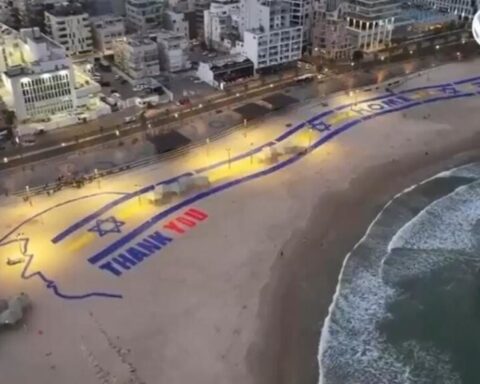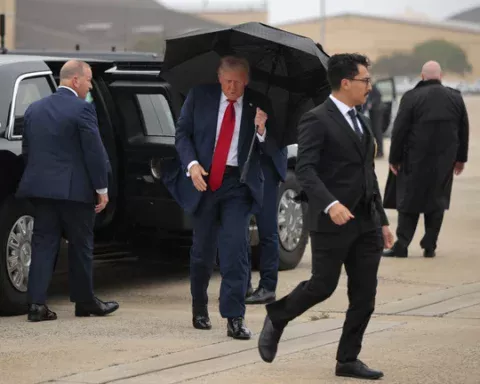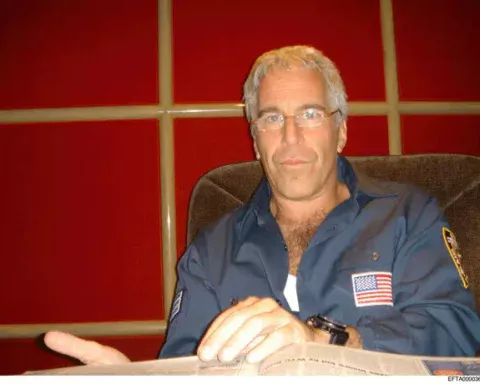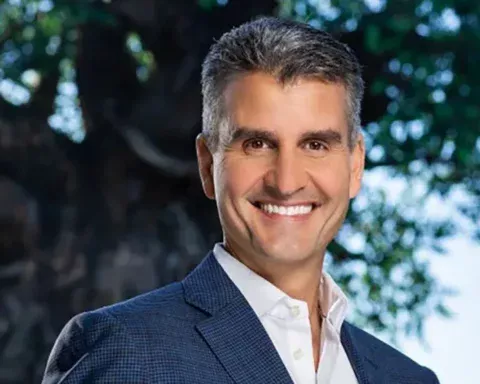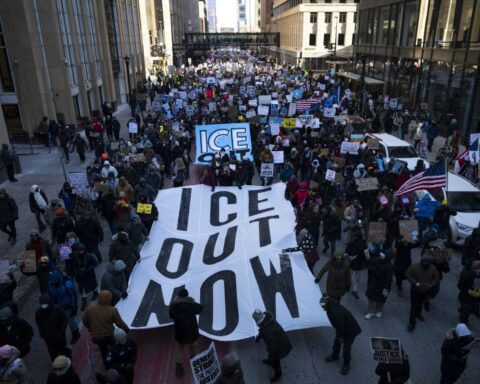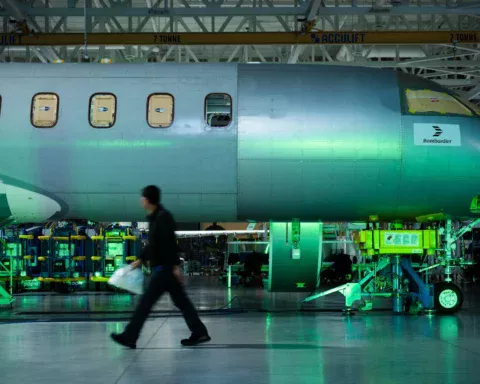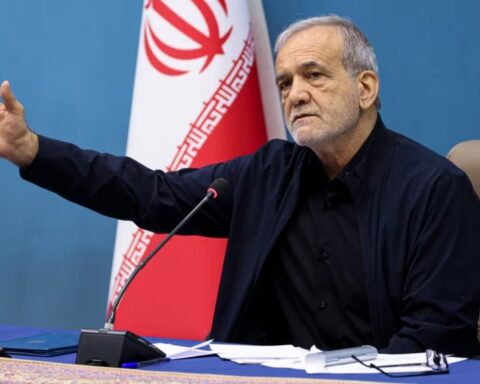Far-right Israeli lawmakers Friday sharply criticized U.S. Vice President Kamala Harris’ call for a cease-fire and concern for human suffering in Gaza following her White House meeting Thursday with Israeli Prime Minister Benjamin Netanyahu.
Thank you for reading this post, don't forget to subscribe!In comments to reporters Thursday, Harris said she expressed unwavering commitment to Israel and will always ensure that Israel is able to defend itself.
Harris, now the leading Democratic candidate for president after U.S. President Joe Biden bowed out of the race early this week, added, “Israel has a right to defend itself, and how it does so matters.”
She went on to say she expressed to Netanyahu her serious concerns about the scale of human suffering in Gaza, including the deaths of “too many innocent civilians.”
“We cannot allow ourselves to become numb to the suffering, and I will not be silent,” she said. Harris urged negotiators to get a cease-fire deal done to end the war.
From his account on the social media platform X, Israel’s far-right Finance Minister Bezalel Smotrich lashed out at Harris’ comments, saying her call for a cease-fire in Gaza amounts to a call for Israel to surrender.
“Kamala Harris revealed to the whole world what I have been saying for weeks, what is really behind the deal,” he wrote. “Surrendering to [Hamas military leader] Sinwar, ending the war in a way that would allow Hamas to rehabilitate and release most of the abductees in Hamas captivity. Do not fall into this trap!”
Shortly after, another Israeli hardliner, National Security Minister Itamar Ben-Gvir, also writing on his X account, succinctly followed up on the same theme: “There will be no truce, Madam Candidate.”
Their comments come as the leaders of three countries — Australia, Canada and New Zealand — issued a call for a cease-fire.
In a joint statement released Friday, Australian Prime Minister Anthony Albanese, Canadian Prime Minister Justin Trudeau, and New Zealand Prime Minister Christopher Luxon called for “an urgent cease-fire in Gaza.”
They wrote, “The situation in Gaza is catastrophic. The human suffering is unacceptable. It cannot continue.”
In their statement, the three leaders said they remain “unequivocal” in their condemnation of Hamas for the atrocities of the October 7 terror attack and its ongoing acts of terror.
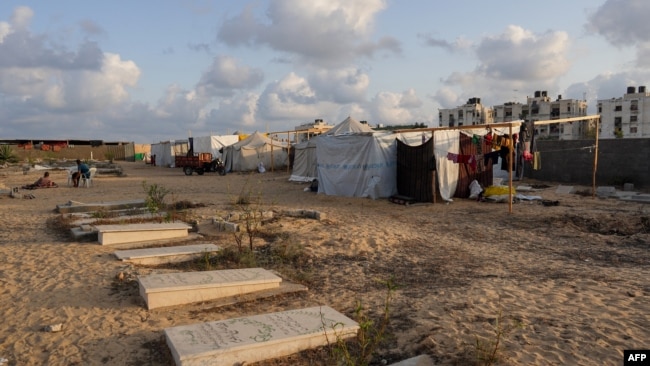
The three said they stand fully behind the comprehensive cease-fire deal, offered by U.S President Joe Biden and endorsed by the U.N. Security Council. “We call on parties to the conflict to agree to the deal. Any delay will only see more lives lost.”
Months of negotiations brokered by the United States, Egypt and Qatar have not been able to secure an agreement on a cease-fire proposal that would include the release of hostages from Gaza, as well as Israel freeing some Palestinian prisoners and a surge of humanitarian aid into Gaza.
Reuters is reporting that according to a Western official, a Palestinian and two Egyptian sources, Israel wants to alter the deal for a Gaza truce and hostage release by Hamas, further snarling a deal to halt more than nine months of war that has ravaged the enclave.
Israel says that displaced Palestinians should be screened upon their return to Gaza’s north when the cease-fire begins. That’s a key reversal on an agreement to allow civilians who fled south to freely return home, the four sources told Reuters.
Talks had been scheduled to continue Thursday with negotiators from Egypt, Israel, the U.S. and Qatar in Doha, but a statement from Israel said its negotiators were “delayed,” without further explanation, and talks now will not resume until next week.
On his way into the United Nations Security Council for a meeting Friday on the humanitarian situation in Gaza, Palestinian envoy Riyad Mansour said of the cease-fire talks, “It is obvious that Netanyahu does not want to stop the war.”
Inside the council, a senior U.N. aid official urged the opening of all border crossings into Gaza and no restrictions on the amount and type of humanitarian assistance entering the enclave, where famine still stalks tens of thousands of Palestinians.
“Today the U.N. is not in a position to provide the necessary assistance to the people in Gaza, let alone to scale up, unless specific factors are in place,” said Muhannad Hadi, U.N. humanitarian coordinator for Gaza.
He said a combination of obstacles, including military operations, lawlessness, Israeli visa procedures for aid workers, destroyed roads and a lack of fuel, continue to hamper aid distribution.
Ambassador Gilad Erdan said those who say Israel obstructs aid do so “falsely and maliciously,” and Israel has allowed more than 800,000 tons of aid to enter Gaza since October. Erdan said the United Nations is overwhelmed by the aid provided and its failure to distribute it is the reason for the aid bottleneck.
Meanwhile, the World Health Organization recently warned that traces of the water-borne polio virus have been detected in Gaza, where raw sewage runs through the streets and mountains of garbage have formed as basic services have collapsed.
WHO Director-General Tedros Adhanom Ghebreyesus said Friday the agency is sending more than 1 million doses of polio vaccine to Gaza to be administered in the coming weeks. He made the announcement in an opinion piece he wrote for The Guardian newspaper.
No human cases of polio have been reported, but WHO has expressed serious concern about the possibility of an outbreak due to the crippled health system and the lack of clean water and sanitation in Gaza.
United Nations correspondent Margaret Besheer contributed to this report. Some information for this report was provided by The Associated Press, Reuters and Agence France-Presse.




